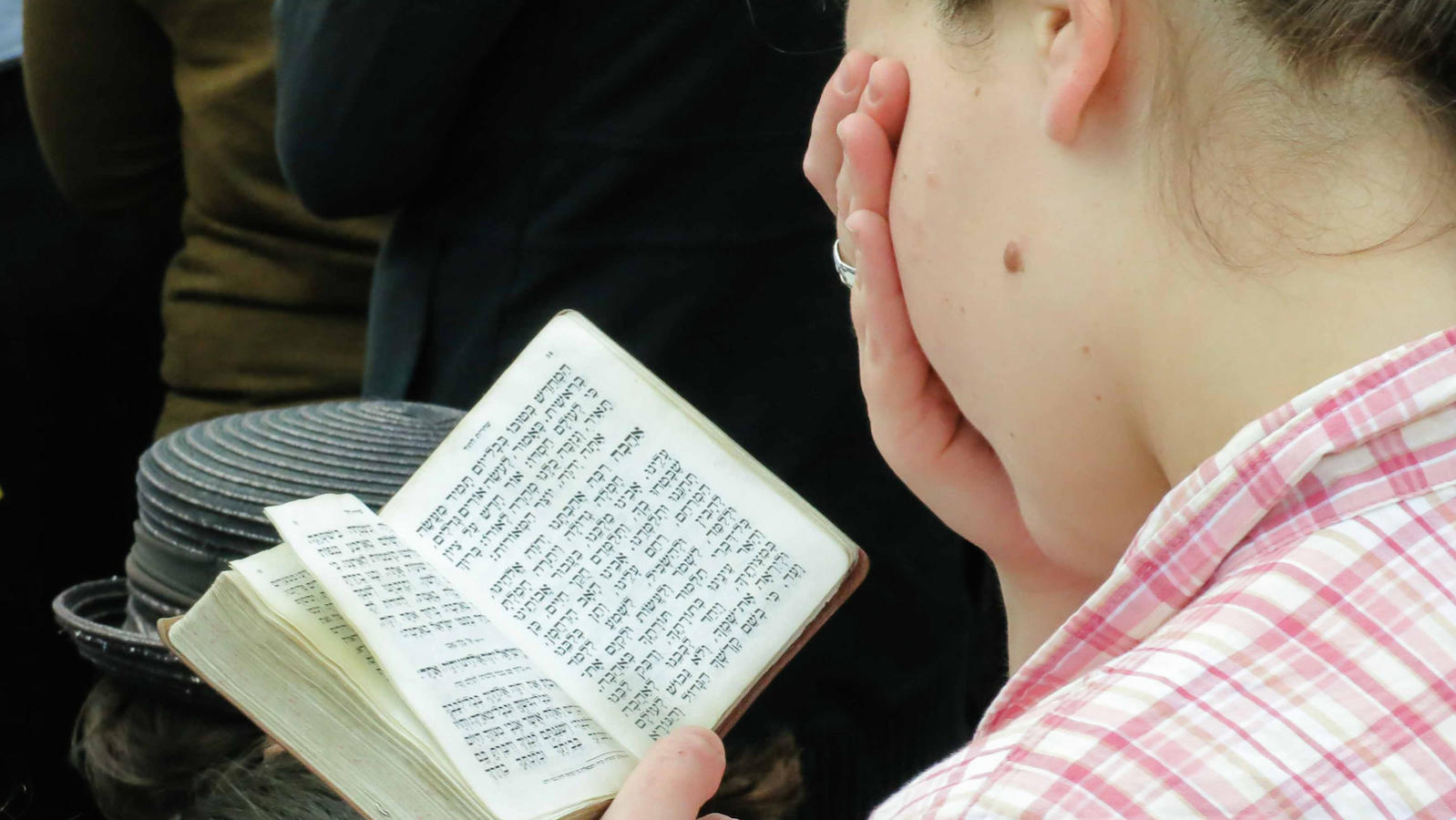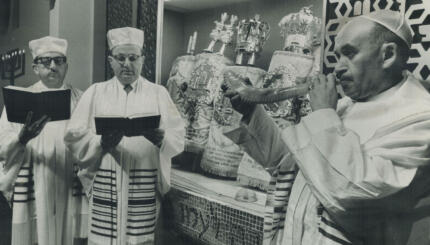According to Rabbi Judah Hanassi, the Day of Atonement procures acquittal of sin–even for those who have not repented individually (Babylonian Talmud, Yoma 84b). The question arises: May a Jew who has sinned, and as a result been discredited as a witness in a court of law, be accepted as a qualified witness on the day after Yom Kippur, even if he has not personally repented? The emphatic answer is: No. Kapparah (acquittal) affects the removal of punishment. The “indemnity payment” shields man from divine anger and wrath. However, his personality remains contaminated, and this condition may be remedied only through ritual “immersion,” that is, by whole‑hearted repentance. Kapparah is possible even when an individual has not repented, but without personal repentance tahara (purification) is unthinkable.
Kapparah is principally connected to the bringing of sacrifices, and in the Holy Temple the prescribed time for offerings were the daylight hours. Ritual purification, in contrast, begins with nightfall, at the “sanctification of the day”–that time when, according to Jewish law, a new day is born.
Purification is conditional upon our drawing near and standing directly “before God,” and as such, it is a spiritually uplifting experience.
There are two forms of confession on Yom Kippur: a communal, public confession and personal, private one. After the destruction of the Temple, the communal recitation of confession by the synagogue reader was substituted for that of the High Priest. However, the intimate, personal type of confession of a broken man, directed inward to himself, remained exclusively in the area of individual responsibility. This is the confession that brings about purification. The communal confession, which is for kapparah, should be said together with the synagogue reader. However, it is impossible to appoint an intermediary in order to achieve self‑purification, as it is by definition clearly a personal obligation. It is absurd from the point of view of Jewish Law for a ritually impure person to send an appointed agent to immerse himself on the former’s behalf. No one can grant another power of attorney to deliver him from a state of impurity and restore him to a state of holiness.
With your help, My Jewish Learning can provide endless opportunities for learning, connection and discovery.
This is the way it was in the time of the Temple, where the High Priest would “direct his attention to those who were assembled” and say, in effect: “We, the Temple priests, are engaged in the performance of those precepts which concern the sacrificial service of the day of Yom Kippur whereby acquittal of sin, kapparah, isgranted. However, the act of purification is something you must perf6rm by yourselves, each man in his own heart.” And he would then say: “Be you cleansed!”
For this reason, the confession of the Mincha (afternoon) service on the eve of Yom Kippur, whose purpose is purification, is not recited by the synagogue reader, for “one cannot appoint an intermediary for purification.” Every Jew must enter within the “holiness of the day” as an individual and stand as he is “before God.” As the nightfall of Yom Kippur approaches, each person listens to the inner voice that calls on him to “be cleansed.”
The Mishnah teaches us: “Rabbi Akiva said: Fortunate are you, Israel! Who is it before Whom you become clean? And Who is it that makes you clean? Your Father Who is in heaven” (Mishnah Yoma 8:9).
It seems certain that Rabbi Akiva said this soon after the fall of the second Temple. To understand the full meaning of his words, we must try to picture the mentality and broken spirit of the Jews in that first year after the destruction of the Temple. Yom Kippur had arrived and suddenly the people realized that there would be no sacrifice service, the High Priest could not enter the Holy of Holies, there was no incense, no public celebration for the High Priest as he emerged from the holy place. They were deprived of the entire sacred service which took place on Yom Kippur when the Temple was standing. They felt that all they cherished was lost and that there was no hope of repairing the damage. It seemed as though they would remain plunged forever within the deep darkness enclosing them. It was then that Rabbi Akiba declared: “Fortunate are you, Oh, Israel, before Whom do you cleanse yourselves?” You may achieve a state of spiritual cleanliness even without the sacrificial service of the High Priest. Comply with the directive “Be cleansed before God” and this will suffice. Come and stand before God. Sense His nearness, and you will be cleansed.
“Who cleanses you? Your Father in heaven.” For just as a ritual immersion purifies the unclean, so does the Holy One, Blessed be He, cleanse Israel. Man must come before God and enter into the sanctity of Yom Kippur in the same manner that he immerses himself in a ritual bath. He must enter wholly without any interposition, not excluding any part, of his being.
“Before God be cleansed!” “For the virtue of this day shall acquit you of sin to cleanse you.” In Hebrew the syntax of the phrase “will acquit you of sin to cleanse you“has the. same implication as the verse in Genesis which says: ‘which God created to do“meaning that which God created and made–so, too, in this case, it may be read as saying: “He will acquit you of sin, and cleanse you.”
Excerpted from On Repentance in the Thought and Oral Discourses of Rabbi Joseph B. Soloveitchik, edited by Pinhas Peli. Reprinted with permission of the publisher, Jason Aronson.
Mishnah
Pronounced: MISH-nuh, Origin: Hebrew, code of Jewish law compiled in the first centuries of the Common Era. Together with the Gemara, it makes up the Talmud.
Yom Kippur
Pronounced: yohm KIPP-er, also yohm kee-PORE, Origin: Hebrew, The Day of Atonement, the holiest day on the Jewish calendar and, with Rosh Hashanah, one of the High Holidays.



